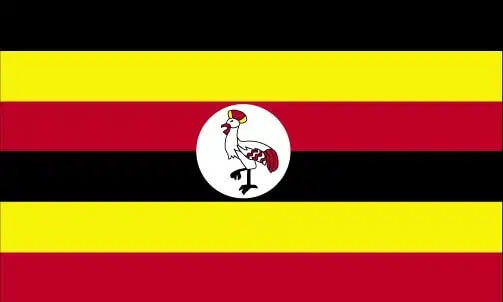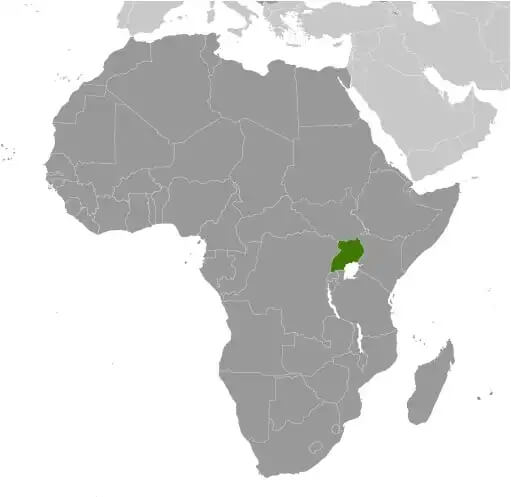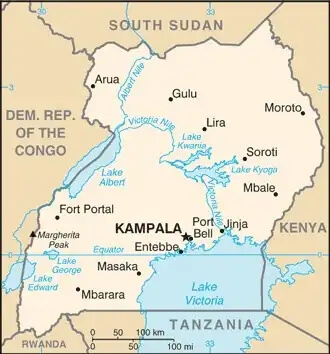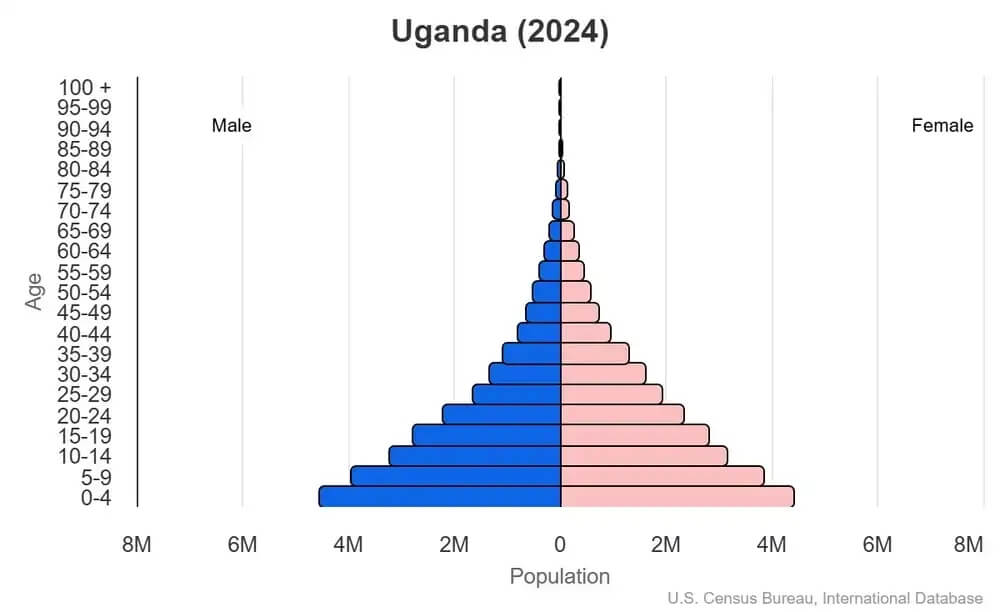World Book
Uganda
World Book Index
51


With a score of 51, the country is ranked 124th out of 158 countries in the World Book ranking. (more information)
Introduction
British influence in Uganda began in the 1860s with explorers seeking the source of the Nile. Uganda's British-created colonial boundaries grouped together many ethnic groups with different political systems and cultures. These differences complicated efforts to establish a cohesive country after independence was achieved in 1962, and Uganda fell under authoritarian rule that led to economic ruin and mass atrocities.
Neighboring countries
Democratic Republic of the Congo - Kenya - Rwanda - South Sudan - Tanzania
Geography
Area
total: 241,038 sq km
land: 197,100 sq km
water: 43,938 sq km
Climate
tropical; generally rainy with two dry seasons (December to February, June to August); semiarid in northeast
Natural resources
copper, cobalt, hydropower, limestone, salt, arable land, gold
People and Society
Population
total: 49,283,041 (2024 est.)
Ethnic groups
Baganda 16.5%, Banyankole 9.6%, Basoga 8.8%, Bakiga 7.1%, Iteso 7%, Langi 6.3%, Bagisu 4.9%, Acholi 4.4%, Lugbara 3.3%, other 32.1% (2014 est.)
Languages
English (official), Ganda or Luganda (most widely used of the Niger-Congo languages and the language used most often in the capital), other Niger-Congo languages, Nilo-Saharan languages, Swahili (official), Arabic
Religions
Protestant 45.1% (Anglican 32.0%, Pentecostal/Born Again/Evangelical 11.1%, Seventh Day Adventist 1.7%, Baptist .3%), Roman Catholic 39.3%, Muslim 13.7%, other 1.6%, none 0.2% (2014 est.)
Population growth rate
3.18% (2024 est.)
Government
Government type
presidential republic
Capital
name: Kampala
Executive branch
chief of state: President Yoweri Kaguta MUSEVENI (since 26 January 1986)
head of government: Prime Minister Robinah NABBANJA (since 14 June 2021)
Diplomatic representation in the US
chief of mission: Ambassador Robie KAKONGE (since 12 December 2022)
Diplomatic representation from the US
chief of mission: Ambassador William W. POPP (since 20 September 2023)
Economy
Economic overview
low-income, primarily agrarian East African economy; COVID-19 hurt economic growth and poverty reduction; lower oil prices threaten prior sector investments; endemic corruption; natural resource rich; high female labor force participation but undervalued
Real GDP (purchasing power parity)
$144.137 billion (2024 est.)
$135.803 billion (2023 est.)
$128.923 billion (2022 est.)
Real GDP per capita
$2,900 (2024 est.)
$2,800 (2023 est.)
$2,700 (2022 est.)
Exports
$9.084 billion (2023 est.)
$6.116 billion (2022 est.)
$6.231 billion (2021 est.)
Exports - partners
India 21%, UAE 16%, Hong Kong 10%, South Sudan 8%, Kenya 6% (2023)
Exports - commodities
gold, coffee, fish, refined petroleum, tobacco (2023)
Imports
$13.853 billion (2023 est.)
$11.079 billion (2022 est.)
$10.62 billion (2021 est.)
Imports - partners
China 19%, UAE 12%, Tanzania 11%, India 10%, Kenya 7% (2023)
Imports - commodities
refined petroleum, gold, plastics, packaged medicine, palm oil (2023)
Human Development Index
The country's Human Development Index (HDI) is 0.582, ranking it 157th out of 193 countries tested. (more information)
World Happiness Report
The World Happiness Report ranked the country 119th out of 158 countries tested with a score of 4.471. (more information)



